Taking their breath away: Remembering Fabian Cancellara's best year
The Swiss enjoyed the greatest season of his career in 2010. In the first of a new series, Chris Marshall-Bell looks back at how he dominated cycling then
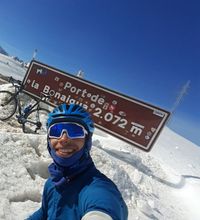
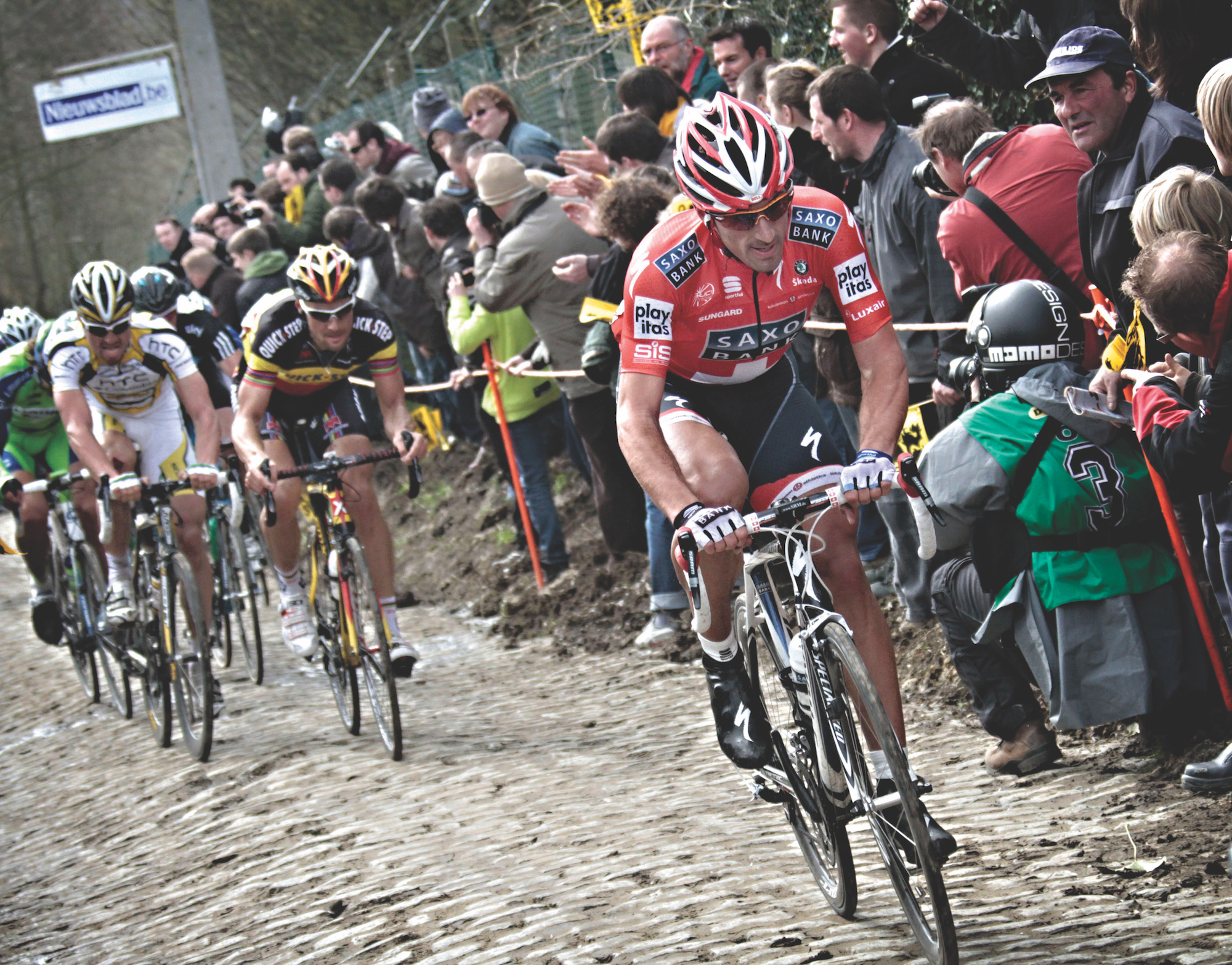
Fabian Cancellara during the 2010 Tour of Flanders (Photo by Lars Ronbog/FrontzoneSport via Getty Images)
The sky was a palette of greys, the clouds concocting fierce, horizontal winds that whipped up and hammered the persistent hard rain into the windows incessantly. The thermometer registered three degrees.
Workers, parents and children all left their houses wrapped in their most protective winter coats, wondering when March would relent and offer some respite.
Inside the walls of a Belgian hotel in Kortrijk, an animated Fabian Cancellara opened the blinds, smiled. "He could not lie in his bed," his team-mate Matti Breschel laughs. "He was an energy bomb."
The Danish Saxo Bank team were staying in the Flandrian town for four weeks as part of the 2010 northern Classics races and Cancellara was tipped as one of the favourites.
In his own unassuming, shrugging-of-the-shoulders manner, he waved it all off. "He was dealing with the pressure and nervousness in his own way," Breschel remembers. "He never isolated himself and was very social. He was fun to be around."
Talk on the outside was a reflection of talk on the inside. "I think people maybe underestimated him a bit because you couldn’t really see if he was concentrated," Breschel explains. "But the more he spoke about himself, the more confidence he got. And he was speaking about himself constantly, in the third person, practising this and that. In his charming way, he was a bit of a prima donna, but with a glint in his eye. I thought, ‘OK, man, this guy is onto something special.’"
Breschel’s assumptions would prove to be correct. In the following weeks, Cancellara would go on to win the Tour of Flanders and Paris-Roubaix, becoming just the 10th rider to do so in the same season. Months later, he would lead the Tour de France for six days, and then wrap up a season of eight wins by becoming time trial world champion for the fourth consecutive time.
The latest race content, interviews, features, reviews and expert buying guides, direct to your inbox!
The Swiss tells us: "2010 was, yeah, I’ve never thought so much about it in depth before, but it was such a crazy year. An amazing year, one of the best. It was a winning year."
Worlds regret
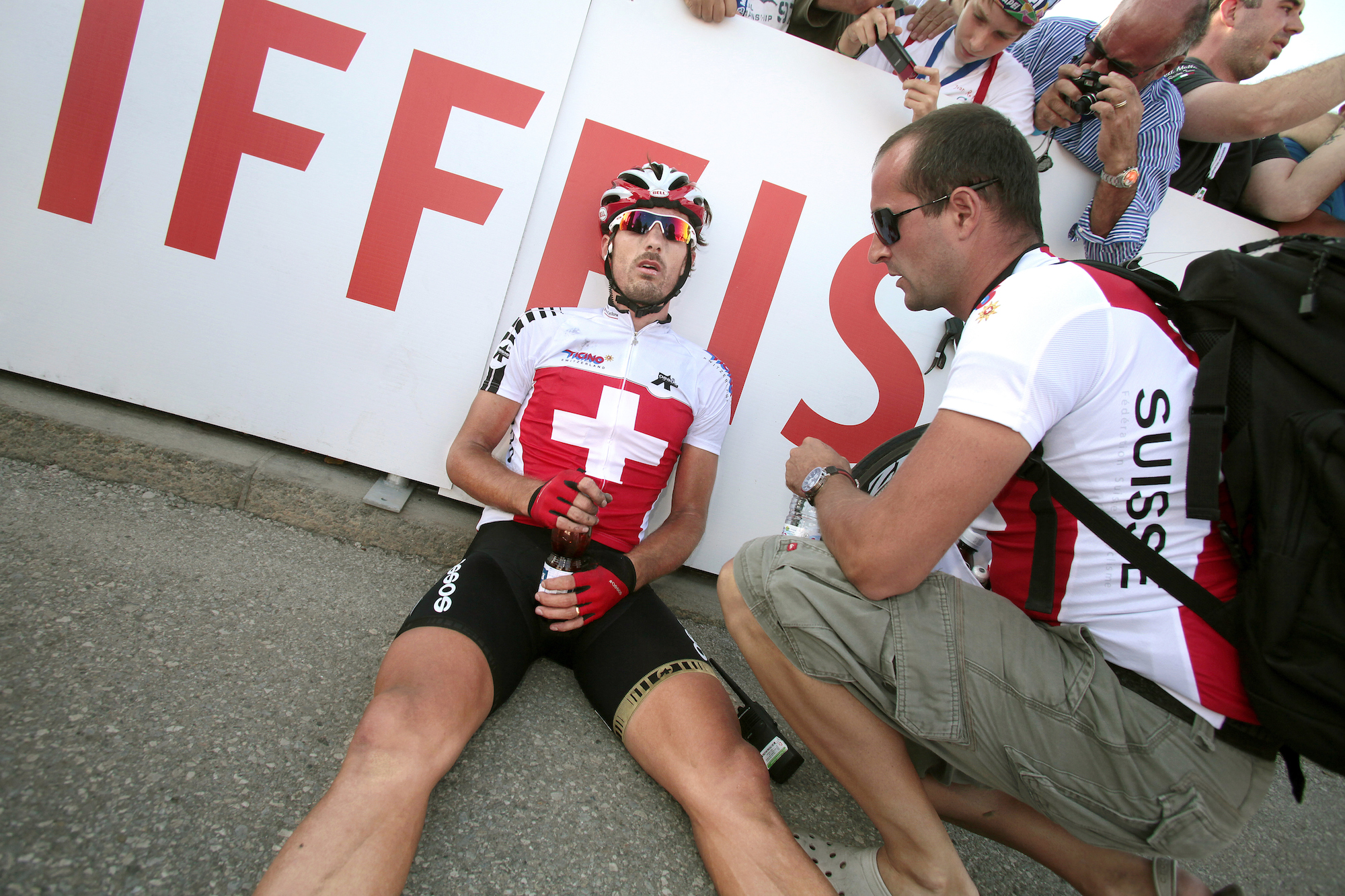
Entering his ninth season as a pro, with a palmarès already boasting a gold medal from the Olympics, wins at Roubaix and Milan-San Remo, 16 days as leader of the Tour de France and three rainbow bands, Cancellara was angry with himself, still seething about mistakes he had made in September 2009 at the Worlds, at not becoming a double world champion in the road race.
"I won the time trial and put myself in a position where I scared people for the road race," he reflects. "But I made mistakes and, honestly, it was hard for me to recover. Mendrisio was bad because I didn’t win [the road race]. That experience gave me another motivation. I had a good winter, went to the Canary Islands and everything went well. I felt bad, but I turned it into a positive and what happened? I won Flanders and Roubaix."
Twenty-eight at the start of the year, Cancellara began his season in the Middle East, racing the Tour of Qatar and Tour of Oman, winning the latter outright. He then returned to Europe, but failed to take wins in any of the three Italian races, Tirreno-Adriatico, Strade Bianche and Milan-San Remo, which led to some commentators questioning Saxo Bank.
But Breschel’s win at Dwars door Vlaanderen helped ease the pressure and boosted morale, and three days later, at E3 Prijs Vlaanderen, Cancellara adhered to his star billing. "Harelbeke always turns into a crazy race, it’s never like, ‘Oh, cool, I won,’" the 11-time Swiss champion says.
>>> Subscriptions deals for Cycling Weekly magazine
"I remember the last 3km with [Tom] Boonen and this is where our battle started. I was super-fast and I beat the Belgian king, in the Belgian national jersey. We had already had many battles, but the way I won, the attack, just before the finish and before the corner, it wasn’t planned to go there. It just came to me naturally.
"This gave me a huge boost of confidence. It was like breaking glass, breaking a wall. I won for the first time a semi-Classic and a big one before the real one."
The joy of winning
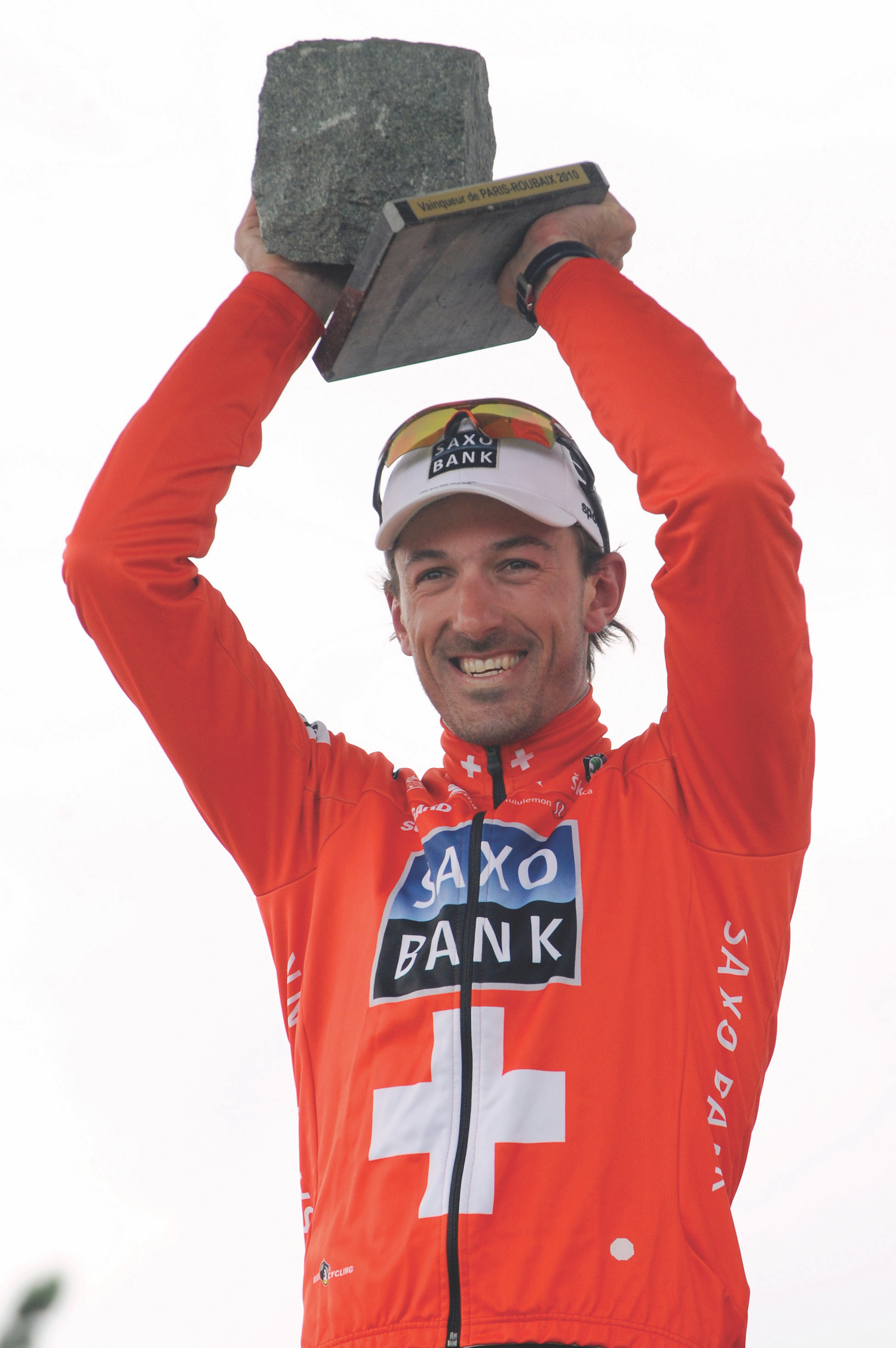
Boosted by victory, the hotel in Kortrijk became the operations headquarters, with the assembled team of riders and sports directors planning not ways in which Cancellara could win Flanders and Roubaix, but how he would win.
"I was racing to win because I love to win," Cancellara says. “I always tried to do everything to get the maximum out of my body.
"With the people who were around me, I tried to maximise the possibility. There were sacrifices on the family side, on my social life with my friends. I was pushing the staff, the equipment, the training, riders. We said: ‘Let’s not just try and win; no, let’s destroy.’ Winning was not just our focus."
Team-mate Stuart O’Grady recalls: "We would be sitting around in our hotel rooms and saying, ‘Mate, everyone expects you to attack here, so let’s attack two climbs earlier. Let’s take control when they don’t expect it.’
"We were messing around because we had to come up with different ways. ‘OK, this team did this last year and the year before someone attacked here, so we will be ready for them this time.’ We came up with masterplans, we were taking control, having fun with it and we would go out and deliver and win."
"We were all very committed," Breschel says. "People were sacrificing themselves 100 per cent for each other and that was the main difference. We had a super strong team, and we were a group that had been together for up to five years. We weren’t just good team-mates, but also good friends. We were all captains.
"We were very dominant on the bike, and off the bike we had fun. We had so much confidence that we were setting the pace in the races and normally Quick-Step did that."
O’Grady feels emboldened by that swagger even now as we speak. "We didn’t have to be walking around beating our chests and calling ourselves the Wolfpack," the Australian says, in reference to the moniker that the all-conquering Belgian Quick-Step team later adopted.
"We had a plan, we didn’t tell anyone, and we had some fun, let things happen. We knew that if we dropped Fabian off at 50km to go –sometimes 80km – he would podium."
Angel delight
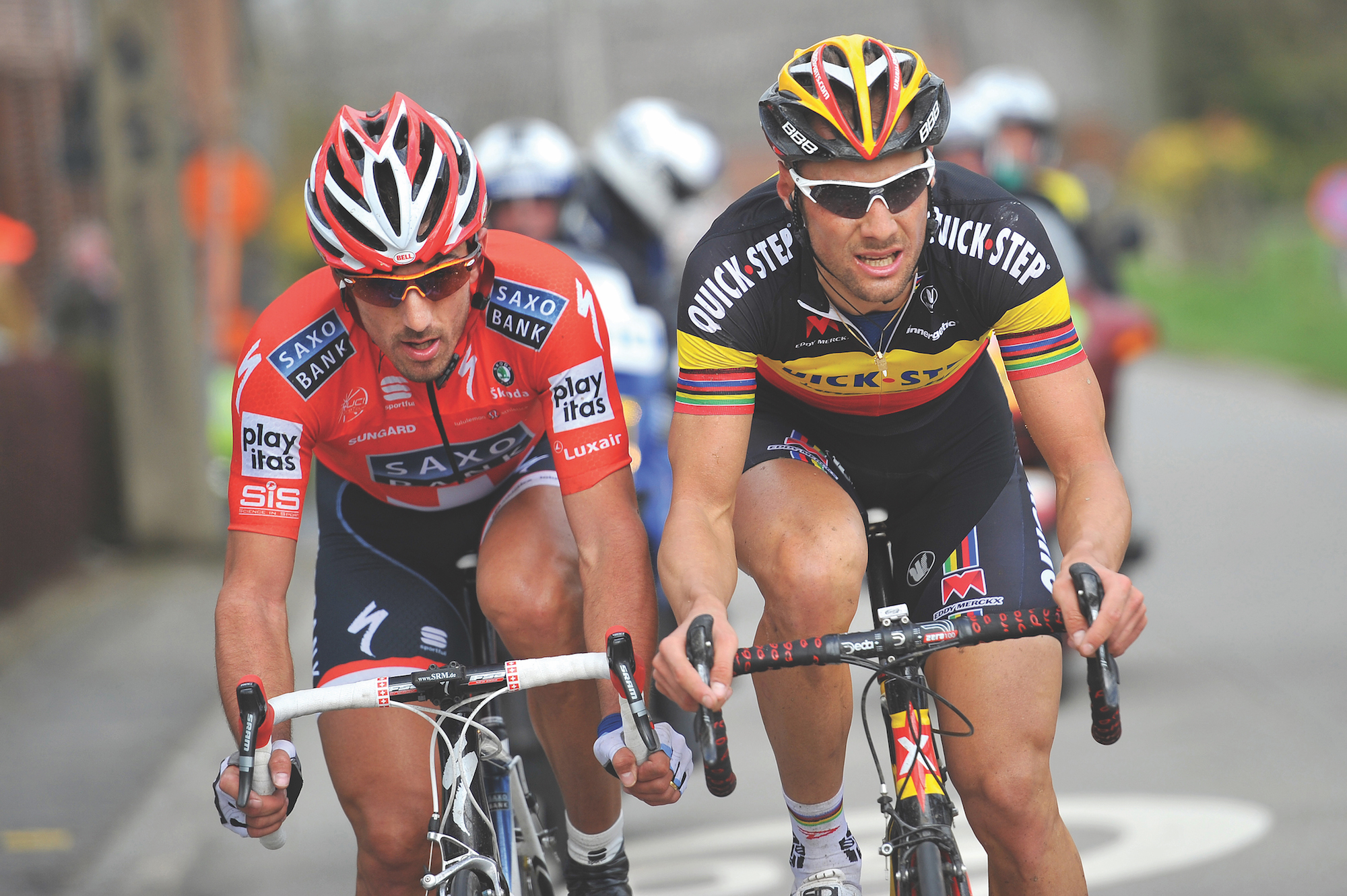
The day before the Ronde, the team started to use a new bike with a bigger fork, designed to make riding on the cobbles more efficient. Breschel and Cancellara had mid-race issues, with the front brakes coming loose, and both were forced into bike changes.
Television footage of Cancellara changing his bike have long since prompted accusations of mechanical doping, though Cancellara has always rebuffed such claims. "It wasn’t nice and I still have that bicycle at home," he says. "But in the end I didn’t care about it." And the racing was explosive.
On the climb of the Molenberg, signalling 44km left to race, Cancellara attacked, only joined by Boonen. "Honestly, I didn’t attack," he insists. "I did a small acceleration out of the saddle and suddenly I was in front. Everyone was like, ‘Uh, I can’t breathe.’ It took their breath away."
Thirty kilometres later, on the Muur, Cancellara distanced Boonen. "I accelerated and just continued the way I was moving and Tom couldn’t follow."
Cancellara powered to the finish line, and as he closed in on his first of what would be three Flanders victories, he draped himself in a Swiss flag from the crowd and dangled an angel to the TV cameras.
"My family gave me this angel as good luck in the morning and I wasn’t sure if I should take it or leave it," he recounts. "But I took it and with 100m to go I thought, ‘Hey, let’s show my family that I have the angel in my pocket.’ The Swiss flag was there by coincidence, and I also had the most beautiful and stylish jersey on the planet as Swiss champion with the Swiss cross.
"I’m not superstitious, but this story of taking the small, lucky angel from my family, showing it to the world and winning Flanders ahead of the champion of Belgium, my first Flanders win, it sounds too crazy. It’s like a Hollywood blockbuster!"
Party on hold
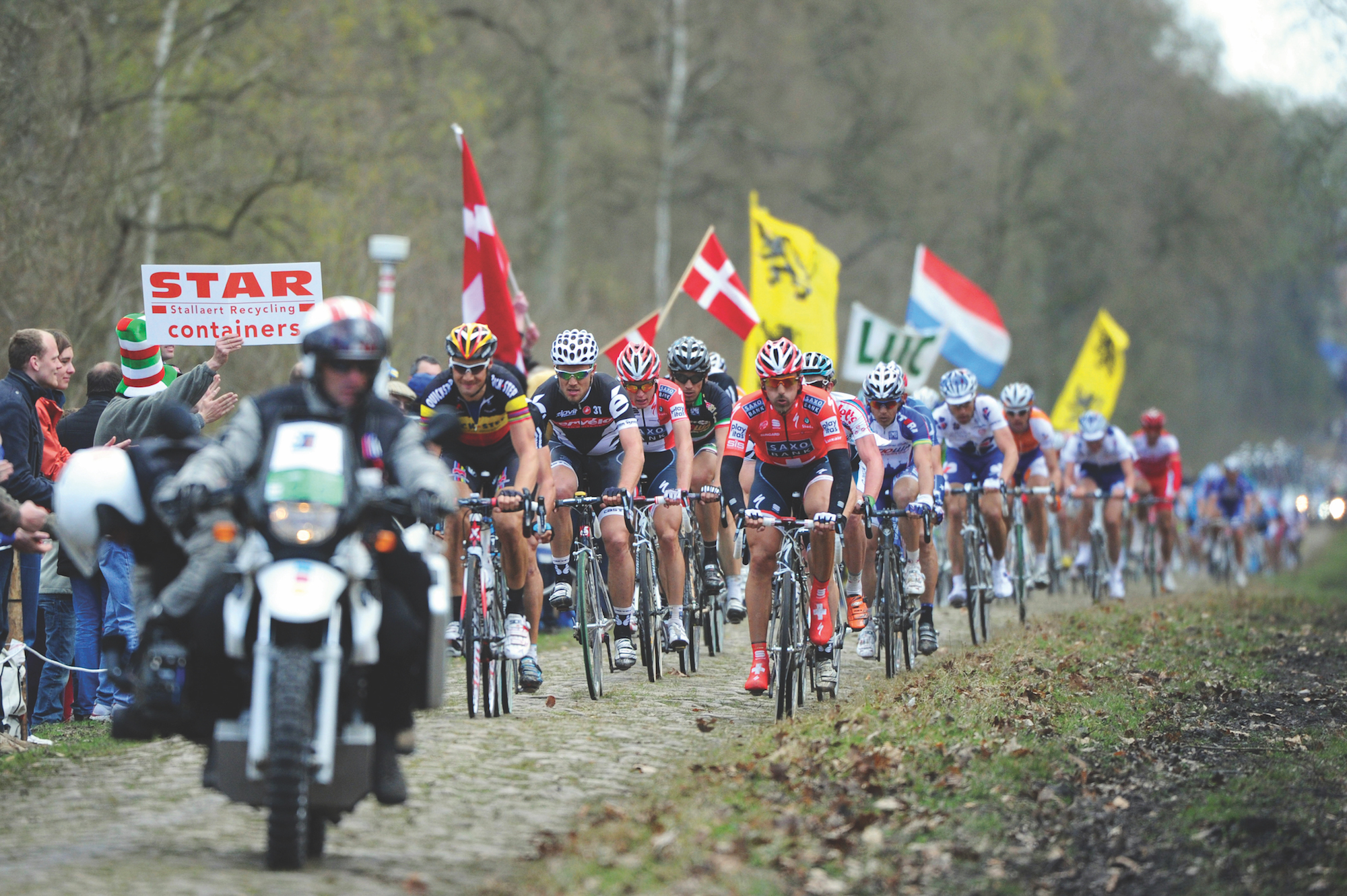
Opening his account at Flanders, though, didn’t warrant a celebration back in Kortrijk. O’Grady remembers: "Normally we would go back to the hotel and celebrate after Flanders, but we were like, ‘Nope, let’s keep this on hold for another week, let’s be completely focused and we can have a bigger party at the end of Roubaix when we have won that.’
"That was the mentality we had. Most people would celebrate until all hours and deservedly so, but that’s how we went. Looking back, it might look greedy, but he had the form of his life and he had sacrificed for months, living in a hotel for a month. Man, we weren’t doing this for fun. We were there to put on a bloody good race."
Instead, the comedian, prankster, leader and the man the entire team sacrificed themselves for, had changed his tone and approach.
"The weeks before Flanders," Breschel says, "Fabian was more calm, running around on the walls.
“But I remember pre-Roubaix he was more concentrated, very focused. He knew if he made no mistakes he could win. I remember the recon on wet pavé and we were very concentrated."
Six days of assiduous preparation led to the start in Compiègne, 259km from the velodrome that he won in four years previously.
Whereas at Flanders he had to bide his time, in Roubaix he attacked solo with 48km still to race. "I knew once I had 10 metres on the others they would be scared, so my motivation was to deliver a psychological blow," he said after the race.
That he did, extending his lead to three minutes as he pedalled over nine sectors solo, and riding into the fabled velodrome two minutes ahead of the chasers. "I just continued to ride," he says in his matter-of-fact demeanour.
"Others stopped because they thought the race was over. It was a special feeling, and I was highly emotional, proud, satisfied, many positive things. It was awesome."
Breschel’s memory is succinct and clear. "He was unbeatable that day." And afterwards? "Then we had that big party."
Tour target
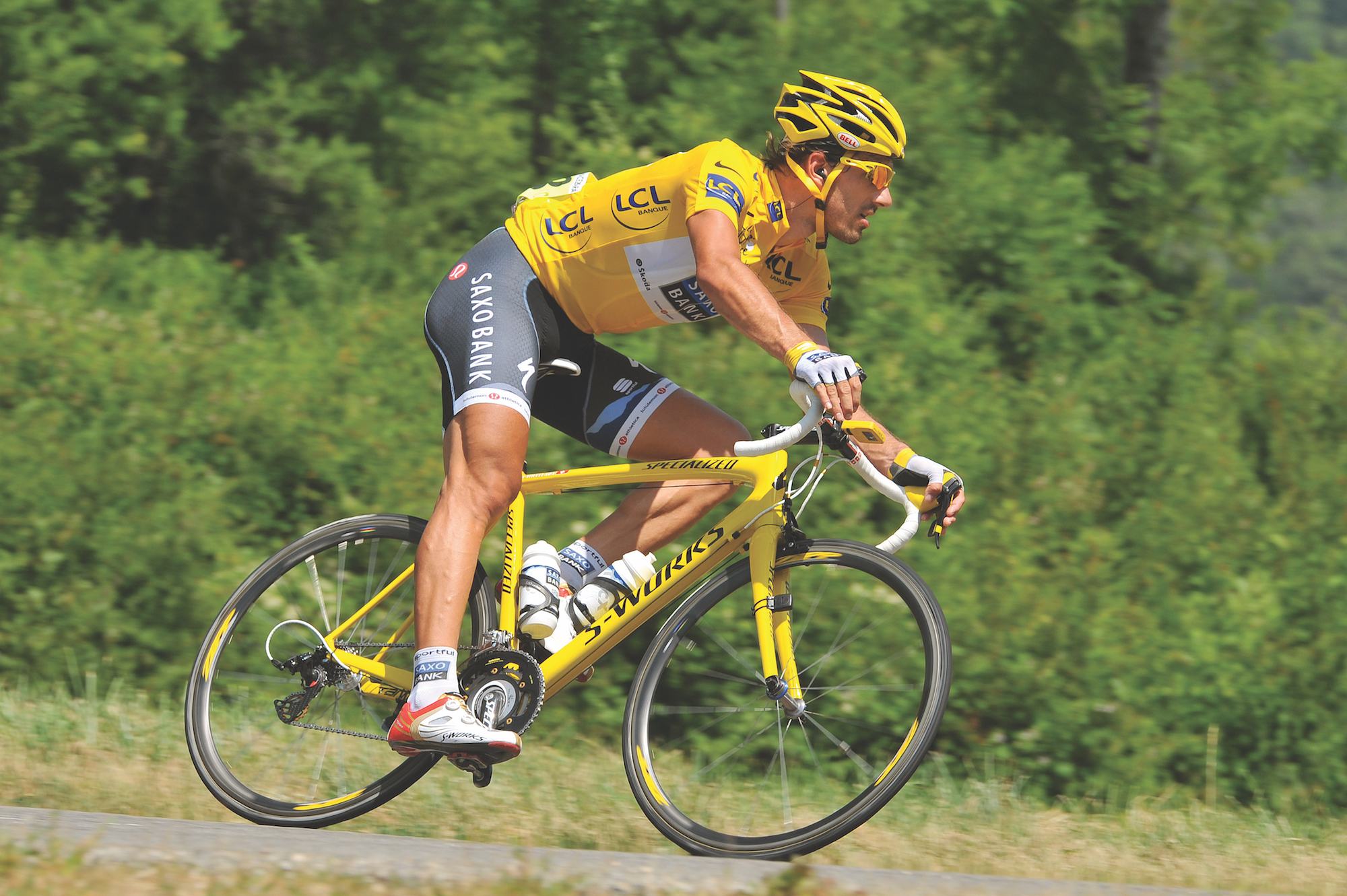
The end of the Classics brought about a brief break for Cancellara, but soon he was back doing moto-pacing sessions, often with sports director Kim Andersen. "We’d be there the whole day, always building up and getting faster and faster," the Danish coach recalls. "He knew that if everything went perfectly well in training, he could win."
He raced the Tour of California as a training race, and then won the opening prologue and finished second in the final day’s time trial of his home race, the Tour de Suisse.
It was preparation for his next goal. The Tour de France, starting with a 8.9km prologue in Rotterdam, offered him the opportunity to wear yellow for a week, given the ensuing kind-looking stages.
"It was a target to win the prologue and that was the main thing: about delivering on what was expected and in time trials I was delivering," he says.
He admits that at the turn of the year he shifted focus away from racing against the clock to winning one-day races. "I had won everything in time trials, multiple times," he says. "The more you win the same thing, the more you lose the will and determination and motivation."
Regardless of his changing motivation, the peloton feared him. "It was a fast course with Tony Martin and so on, but this is what is crazy: people were expecting to be second to me. 'Cancellara is going to win,’ they said. And when you deliver, that’s special."
>>> Cycling Weekly is available on your Smart phone, tablet and desktop
After ceding the jersey on stage three, he reclaimed it the following day, finally losing it for good on stage seven. He then conserved energy and won the penultimate stage, a 51km time trial, his sixth Tour stage win.
Yellow was wrapped around him for five days as the peloton snaked its way south from the Netherlands to France, and Breschel remembers him being as buoyant as ever. "Having the yellow jersey meant that he was the one rider everyone focused on and he liked that. The more attention he got, the better he duly became."
Four in a row
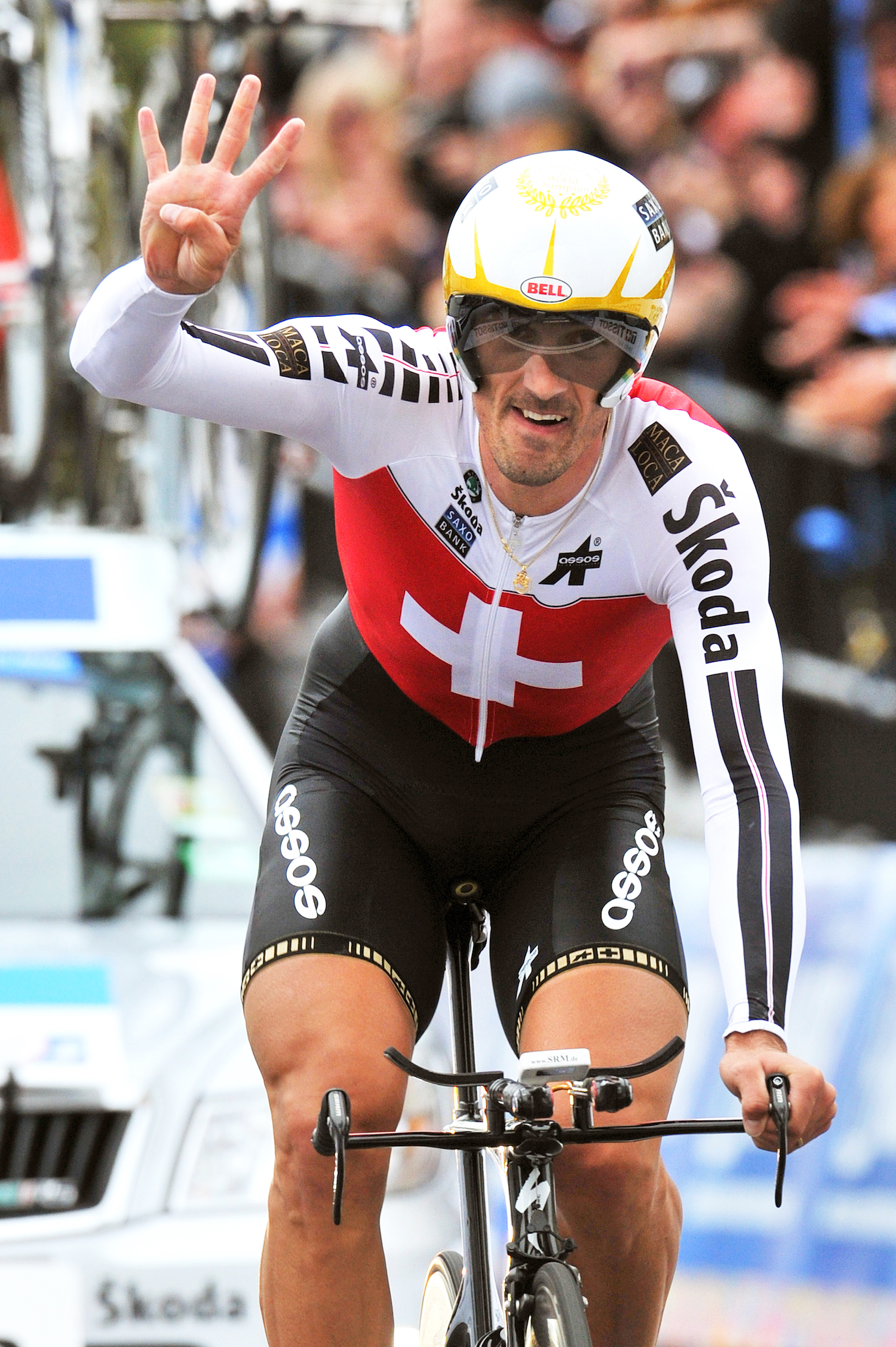
From the mountains of France, Cancellara raced the Vuelta a España – his third place in stage 17’s time trial his best result, before heading to the World Championships, held in Geelong, Australia.
Down Under, he became the first elite men’s rider to win four successive time trial titles – despite his lack of focus against the clock.
"I had to find another motivation," he says. "And the motivation was to make history." Briton David Millar was second, 1.02 back: "There is no doubt that he is a phenomenon," the Scot said of Cancellara.
The win in Geelong wrapped up a season of eight individual wins, four podiums, 38 team victories and being crowned winner of the Vélo d’Or. "My season was already perfect with the spring and the Tour, and now this victory today," he beamed in Australia.
He left Saxo Bank in the winter to join Leopard-Trek, and sitting in his house in Switzerland, he remembers with fondness what happened a decade ago. "I had crazy, special, fantastic years; years where I scared people. Not scared, but surprised people. I was just riding, with passion, with a will and a want to win bike races.
"I respected people, I wasn’t arrogant, I was focused. I wouldn’t say selfish, sure, I had an ego, but I performed. I did the maximum and I am proud of what I achieved."
The year impacted on his life, too. "I loved the years with Bjarne Riis [team director] and CSC. Fantastic years, less politics, less thought, less social media except for Twitter.
"Cycling is not only about the riding: it’s about taking your life where you can get something out of it, where it can help in your life after cycling.
"Thanks to 2010 and the years after and the wins I got over the years, cycling helped me. Sport helped me."
This feature originally appeared in the print edition of Cycling Weekly, on sale in newsagents and supermarkets, priced £3.25.
A freelance sports journalist and podcaster, you'll mostly find Chris's byline attached to news scoops, profile interviews and long reads across a variety of different publications. He has been writing regularly for Cycling Weekly since 2013. In 2024 he released a seven-part podcast documentary, Ghost in the Machine, about motor doping in cycling.
Previously a ski, hiking and cycling guide in the Canadian Rockies and Spanish Pyrenees, he almost certainly holds the record for the most number of interviews conducted from snowy mountains. He lives in Valencia, Spain.
